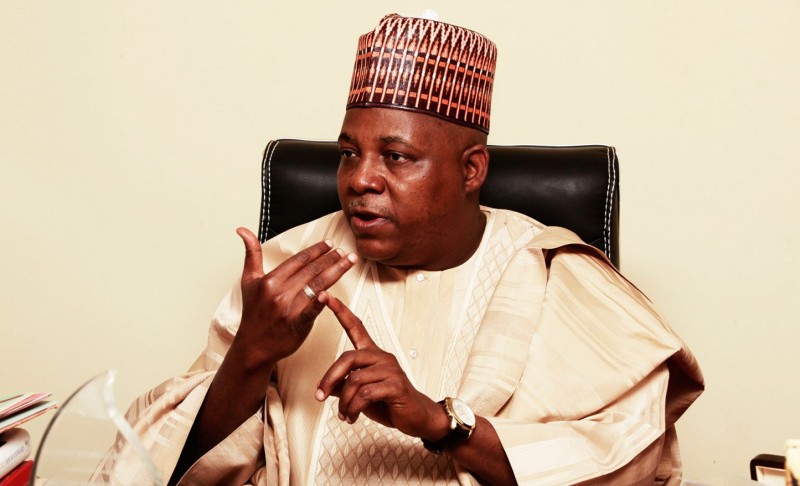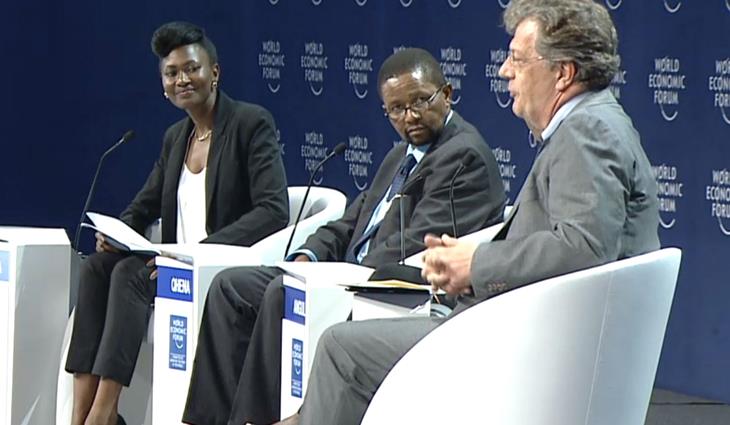VIENNA, May 24, 2016
The World Bank Group, along with 12 international organizations, on Tuesday launched a new initiative that will make it easier for governments, the private sector and the global community to work together to lessen the impacts of climate change and for the private sector to play a more active role in the design of policies and programs that tackle climate change.
The initiative brings together leading climate advocacy organizations around a set of six Principles for Dialogue on Climate Action, which will guide discussions at the global, local and country level as governments and their private sector partners implement plans and identify solutions to help deal with this major global crisis.
“When governments establish inclusive dialogue with the private sector as well as international organizations, civil society, and communities, they can produce better integrated and more comprehensive strategies capable of addressing a crisis whose impacts extend from remote villages and islands to the planet as a whole,” the Principles read.
Announcing the Principles, at the start of the Dialogue for Climate Action conference in Vienna, Austria today, Anabel Gonzalez, Senior Director of the World Bank Group’s Trade & Competitiveness Global Practice said, “This represents a significant milestone in global climate action and is an important step forward in bringing together governments, businesses, and civil society to collectively take action to fight climate change. The principles help scale opportunities for industry action in climate change and investments in climate technologies and will help reinforce the global commitment made in Paris.”
Climate change is a fundamental threat to economic development and has the potential to push 100 million people into poverty by 2030. The amount of work that needs to be done is considerable. Developing countries will need about $100 billion of new investments by 2020 to bolster their economic resilience against the effects of climate change. Cooperation between governments and the private sector can accelerate those investments in emerging economies, but dialogue between the two will be essential.
“Private sector must be a part of an effective solution to climate challenge,” said Abdelouahed Fikrat, General Secretary, Moroccan Ministry of Environment. “These principles capture the essence and the starting point of how to design effective action oriented climate dialogues that allow public and private sector to collaborate. Morocco’s experience and approach confirms that. A centre of competences for climate change (4C Morocco) established as a capacity building and dialogue platform for private and public actors as well as academia and civil society, is set up. The principles of the declaration and the event holds potential to contribute significantly to COP22 agenda and offer a real tool to policy makers to engage with private sector.”
The private sector, with its significant financial resources and dedication to innovation, has a leading role to play in the urgent global effort to reduce the negative effects of climate change and create the healthy, thriving zero-carbon economy of the future. CEOs from industries ranging from textiles to technology companies have pledged to scale-up efforts and investment in climate action. Private sector involvement can take many forms, from development of new technologies and financial instruments to participation in policy development.
For the private sector, effective dialogues, as outlined in the Principles for Dialogue on Climate Action, can increase the quality and predictability of the business environment in a green economy. In emerging markets, they can provide a path to growth for small and medium enterprises (SMEs) and a means of moving people out of poverty.
Signatories to the Principles include Arçelik A.S.; Business Initiative Leading Development (BUILD); Carbon Trust; CLASP; Dalberg Global Development Advisors; Danish Industry; SITRA; University of Cambridge Institute for Sustainability Leadership; We Mean Business; and the World Bank Group.
Several more organizations are participating in the two-day Dialogue for Climate Action event and have pledged their support to the Principles.
The partners agree that achieving successful outcomes in climate change policy depends upon the private sector, civil society and the public sector working together with equal voices in prioritizing issues and identifying solutions, and that structured dialogues are one potential way to achieve that objective. In addition, the partners commit to contribute to building and maintaining an active community of practice that is focused on delivering and learning from climate dialogues.
The Trade and Competitiveness Global Practice of the World Bank Group is working through its Climate Competitive Industries and Climate Technology Program to promote climate-friendly policies while promoting competitiveness and maximize growth in clean tech sectors. It has a growing global portfolio of projects covering over 20 countries with our innovation centers and direct support to client governments.



